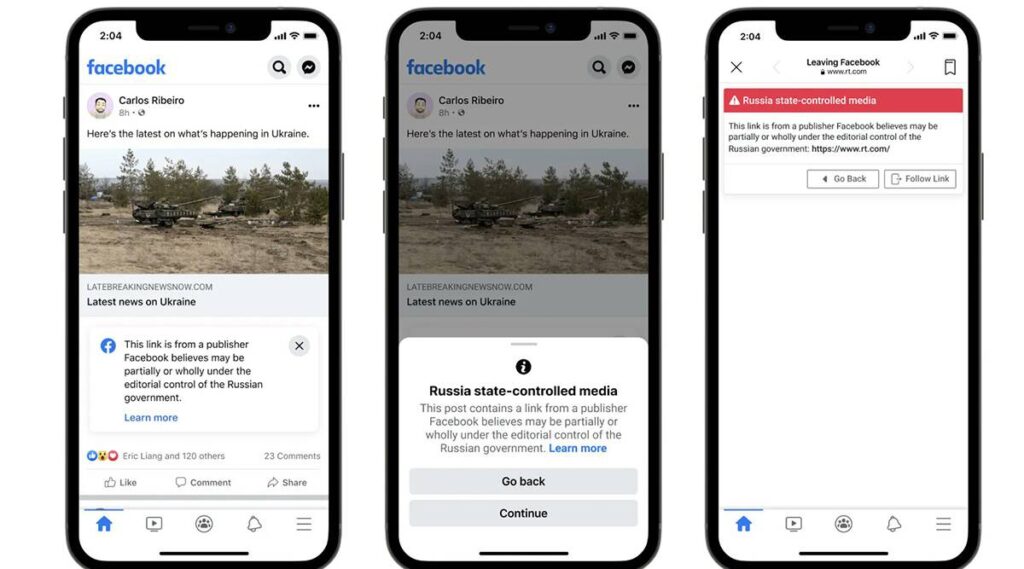Facebook’s parent company Meta has also announced that it will be taking steps to restrict access to Russia’s state-controlled media in Europe, which includes RT (formerly Russia Today) and Sputnik.
Facebook’s parent company Meta has also announced that it will be taking steps to restrict access to Russia’s state-controlled media in Europe, which includes RT (formerly Russia Today) and Sputnik. Youtube announced a similar move yesterday. It will also begin demoting content from pages by Russian state-controlled media on Facebook and Instagram. Twitter had also said it would label content from Russian state-affiliated media and that it would reduce their reach on the platform.
Nick Clegg, Meta’s President of Global Affairs tweeted, “We have received requests from a number of Governments and the EU to take further steps in relation to Russian state-controlled media. Given the exceptional nature of the current situation, we will be restricting access to RT and Sputnik across the EU at this time.”
Meanwhile, Nathaniel Gleicher, Meta’s Head of security policy, tweeted that the company has already begun “demoting content from Facebook pages and Instagram accounts from Russian state-controlled media outlets,” and that it will make it harder for users to find these pages and their content across its platforms.
Further, Facebook has begun to demote posts with links to Russian state-controlled media. Just like Twitter, it will label “these links so people who do see them will have context before clicking or sharing,” Gleicher wrote. Meta will take similar steps on Instagram as well.
He also wrote that Meta expects that these “outlets could create new sites or dynamic links in an effort to evade enforcement”, but added that the company will “continue to adjust for additional links as we confirm them.”
“We also continue to add labels to additional Facebook Pages and Instagram accounts from Russian state-controlled media so people know who they are hearing from,” he said.
Gleicher also tweeted that the military, public figures, and journalists in Ukraine should up their online security as they continue to “see threat actors targeting people in Ukraine.” He urged these users to ensure they have two-factor security authentication on the device, to use strong secure passwords among other tips.
“Do NOT reuse passwords across your online accounts. Malicious hackers can take advantage to gain access to all of them at once. Use a password manager to ensure you can use strong passwords across all of your accounts,” he posted.
He also urged users in Ukraine to use “caution when accepting friend requests and opening links and files from people you don’t know. Be especially cautious when entering your credentials into websites.”
Source:Indianexpress.com


